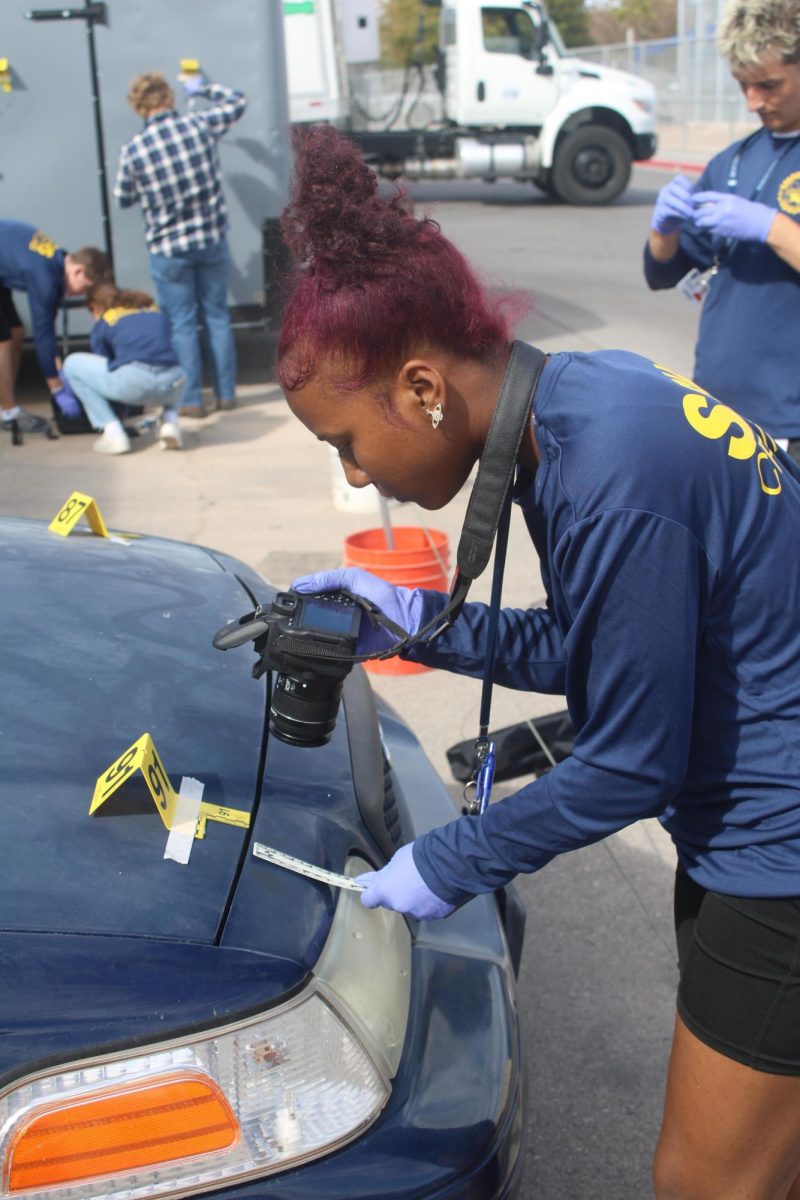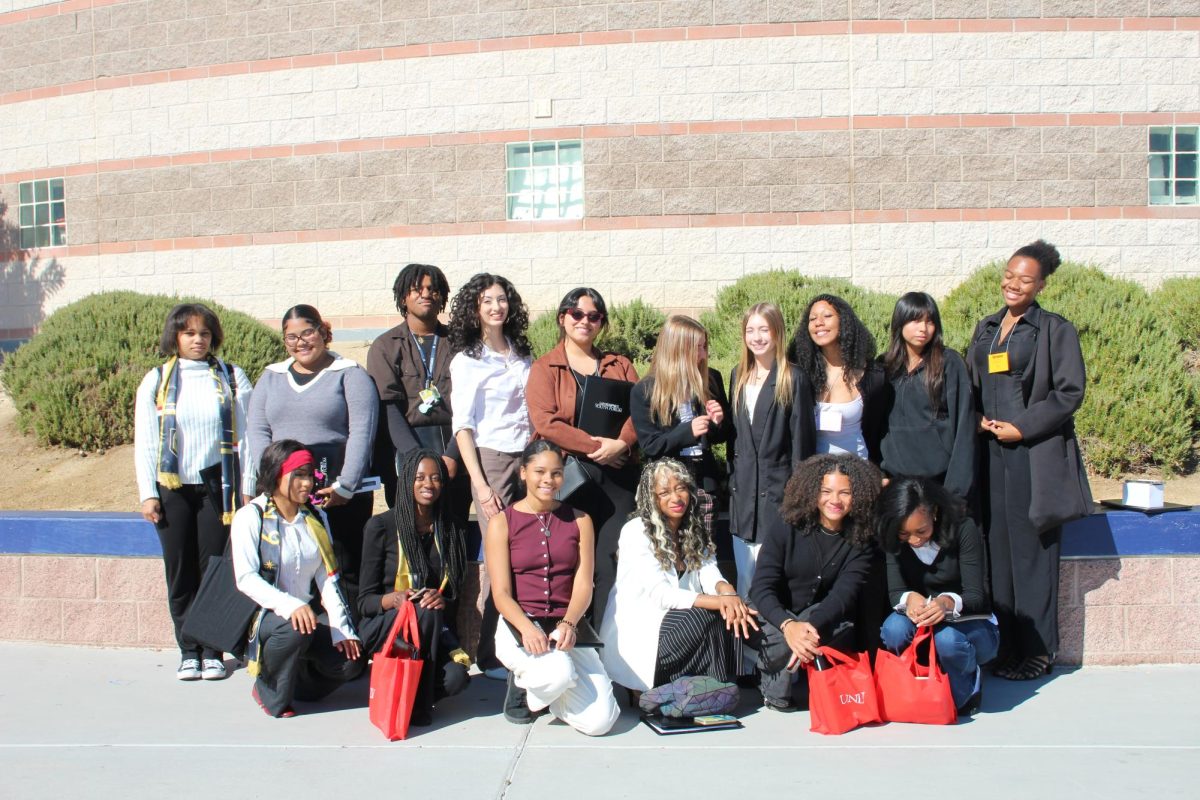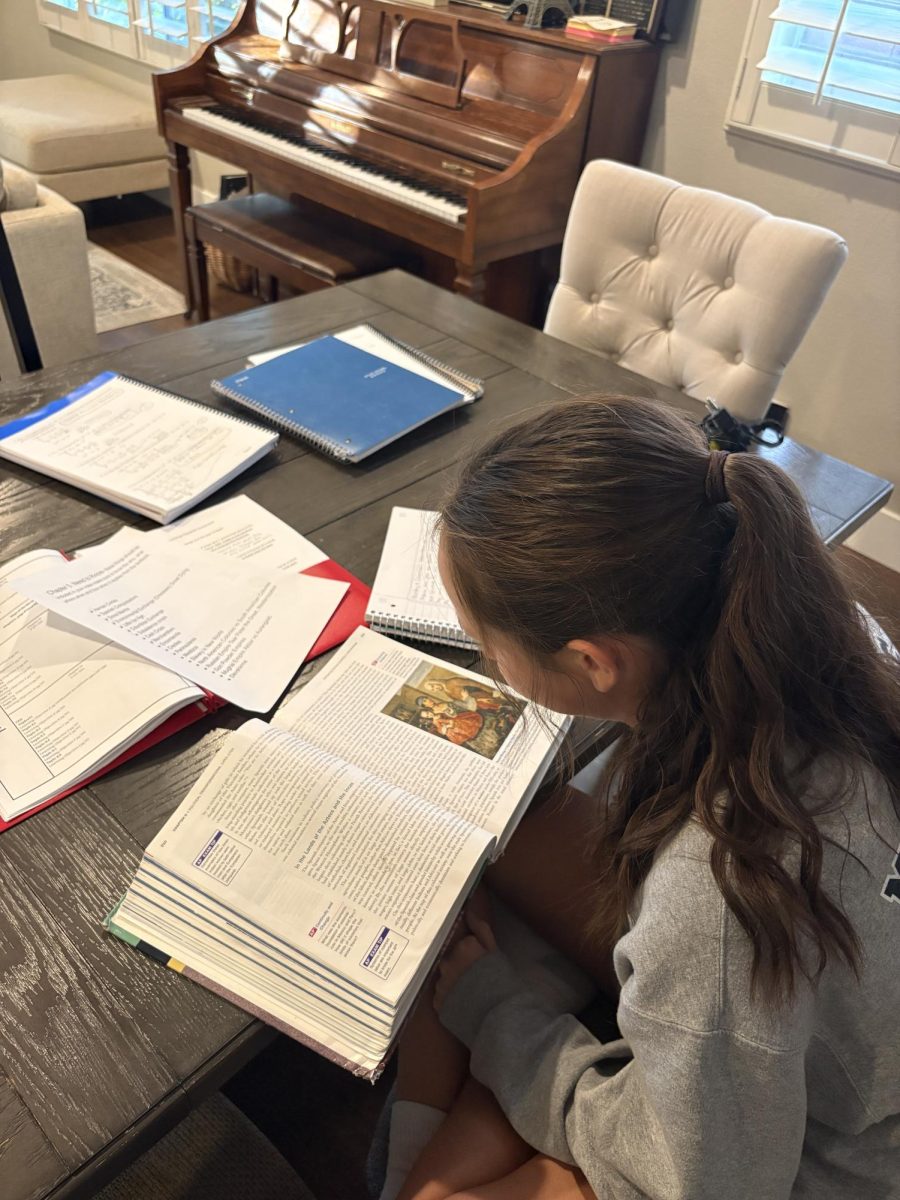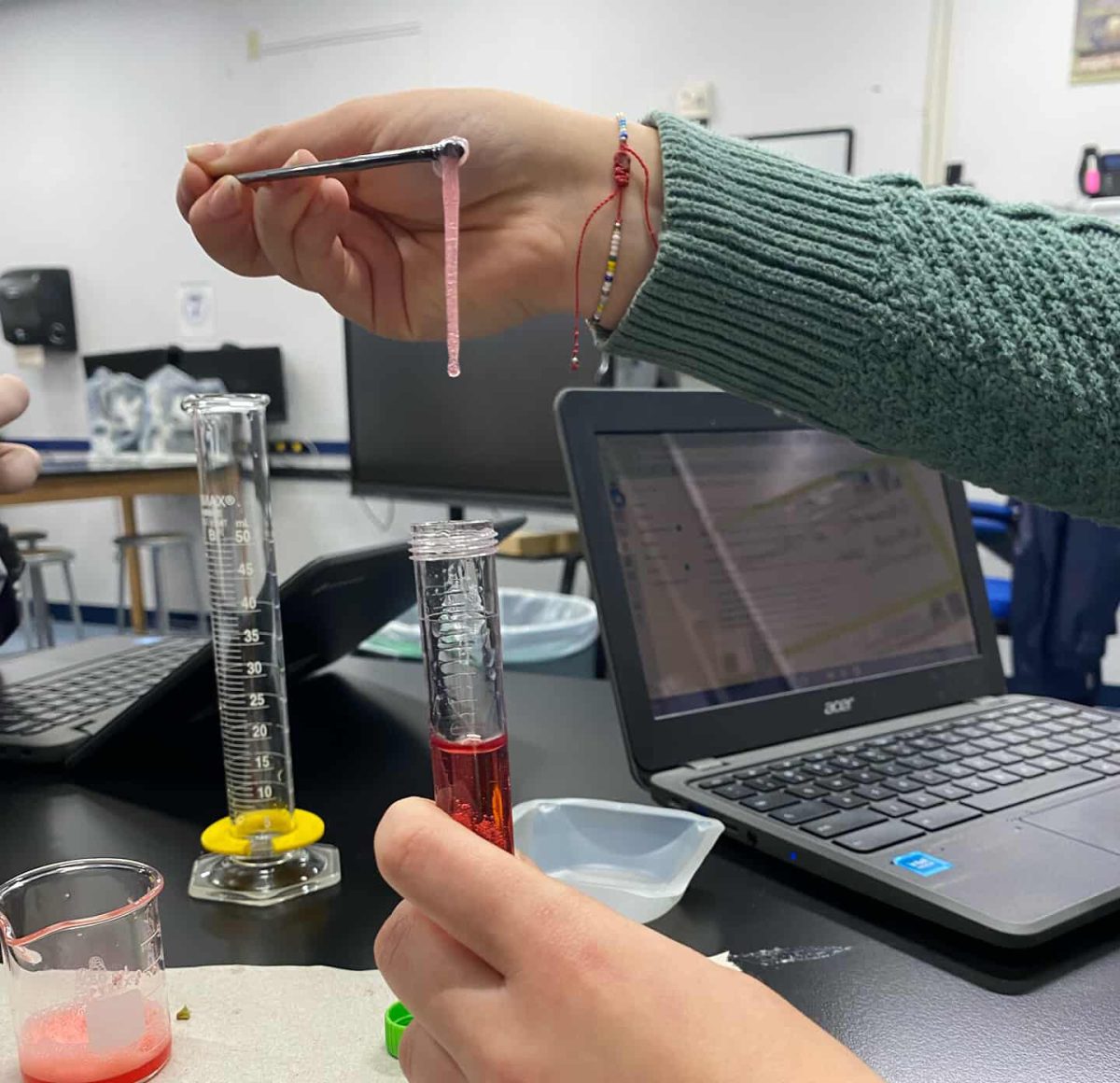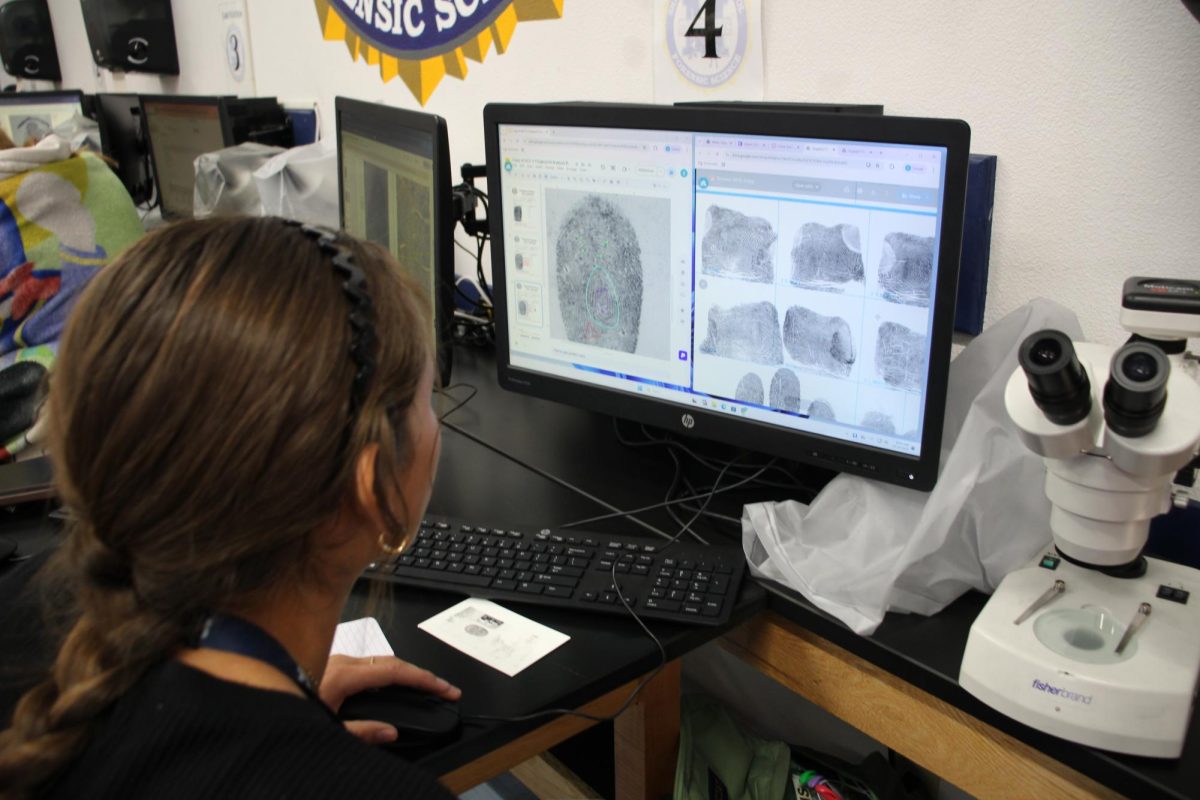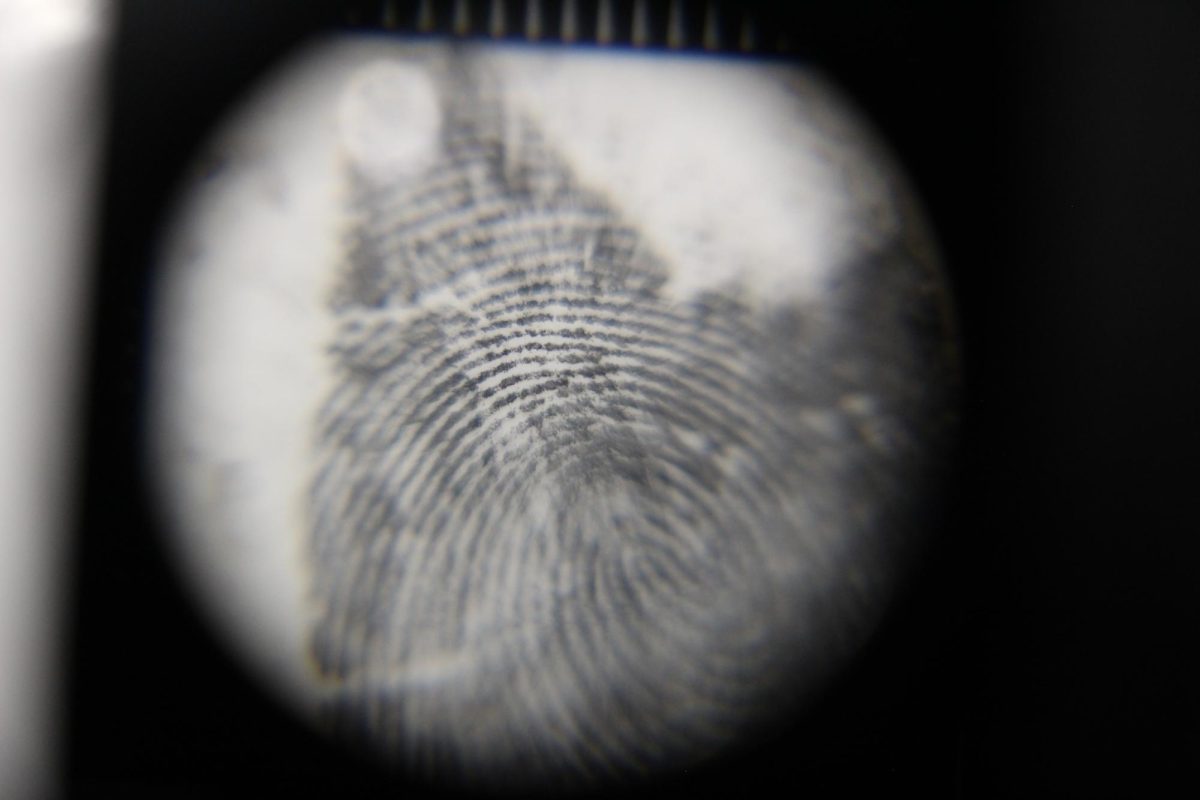In the crowded halls of Shadow Ridge High School, is where students can find a classroom that stands apart from the other classes. Instead of the usual boring lectures and the consistent work that will never get turned on time, students are intrigued by the neon yellow caution tape draped across doorways, fingerprint kits on lab tables, and mock crime scenes staged with diligent detail. Above it all is forensic science teacher, Robert Stahlke, who teaches students the basics of what it takes to become a successful crime scene investigator.
The path to becoming a Crime Scene Investigator (CSI) is an exciting and challenging journey. It begins with the basic knowledge of science and a passion for solving mysteries. Stahlke provides hands-on-labs and mock crime scenes to show his students the ways of communicating with one another to solve a crime scene. Stahlke also teaches the students the key skills and qualities in order to make a successful crime scene investigator.
Crime Scene Investigators (CSIs) need top notch observational skills in order to spot tiny details during crime cases. For example, critical thinking helps Stahlke’s students analyze evidence logically and solve complex puzzles. Stahlke also encourages the students to learn from one another, and effective communication ensures that all findings are well documented and understood by everyone involved. During a crime scene, students are taught that it is very important and essential to wear Personal Protective Equipment (PPE) to prevent any evidence from getting contaminated by the investigator’s DNA, hair, etc.
“Follow your agency’s guidelines,” states Stahlke, “have integrity and collect evidence the correct way. Take good notes and note everything you are doing. It is imperative crime scenes do not get contaminated by outside sources so making sure the scene is secure, by not allowing individuals in, protects the crime scene. Everyone also needs to make sure they are wearing PPE.”
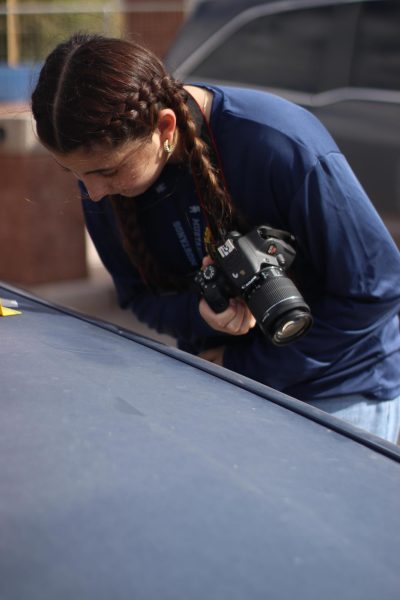
Genuinely, if students are more than interested in forensic science and becoming a CSI (Crime Scene Investigator), students should consider becoming a part of Shadow’s science clubs, keep up their grades in science and math courses, and watch documentaries.
“It is preferred to have a bachelor’s degree,” Stahlke shares, “but one can have 60 college credits in a science field and have a combination of work experience in the field. Once you are accepted and trained you will get specialized training on the job.”
Sophomore Christy Mitchell is a part of Stahlke’s Forensic Science I class and has no regrets joining. She loves the environment and the students in her class. She enjoys learning the basics on how to become a successful CSI and learning the terminology.
“We learned how to properly collect evidence and to not contaminate crime scenes,” Mitchell states. ”I also enjoy the unity of the class, the structure always incorporates a lot of team building and working together. The class is one of my favorites and I believe I will continue it until I graduate.”


